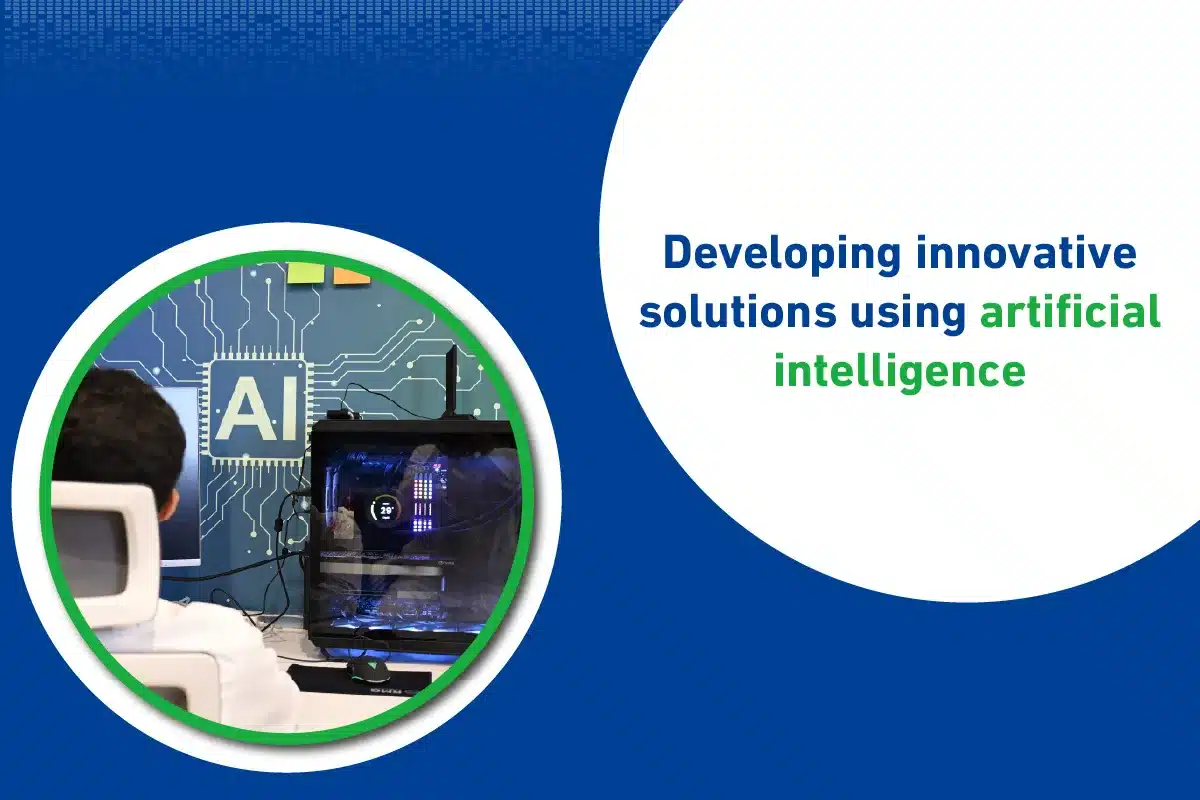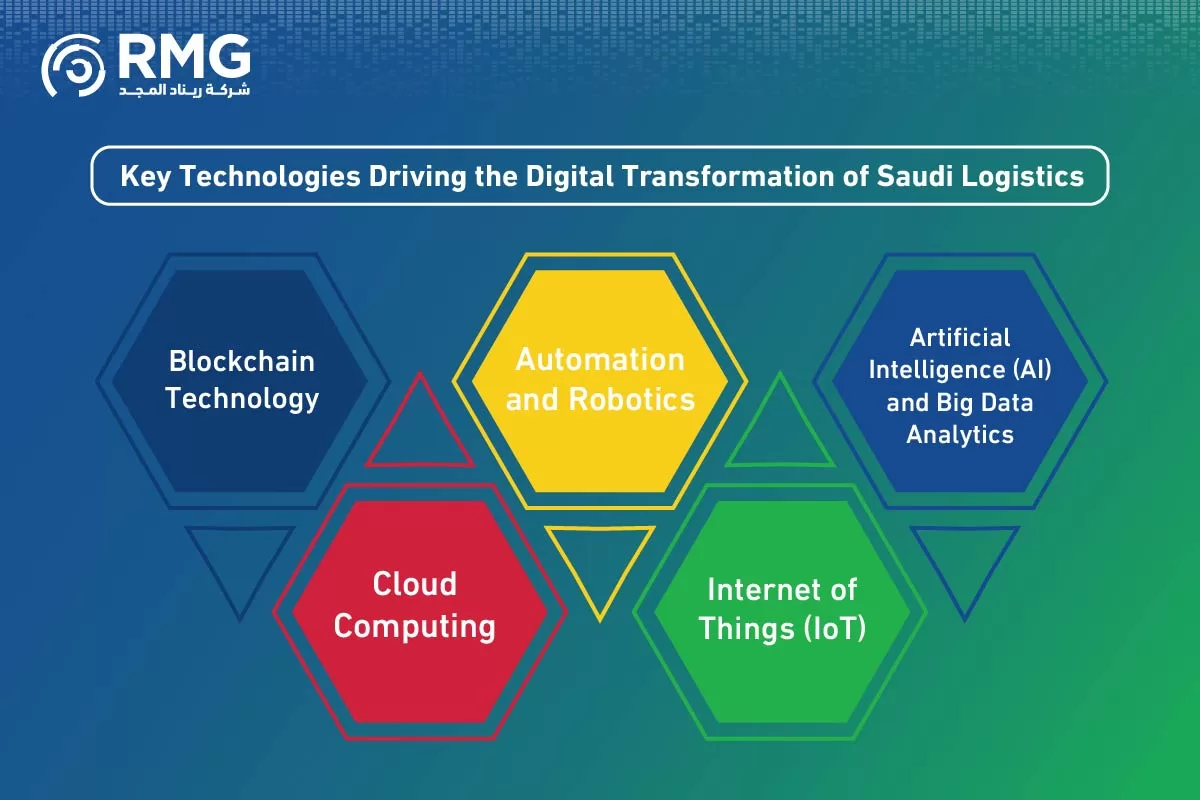Blog Body
Discover how the digital transformation of Saudi logistics is reshaping the future of supply chains. A specialized guide for government and private institutions towards achieving operational efficiency and market leadership in the competitive Saudi market.
Is the Digital Transformation of Saudi Logistics a Strategic Necessity or a Technological Luxury?
At the heart of Saudi Arabia’s vibrant economy, the discussion around the digital transformation of Saudi logistics is no longer just about adopting new technologies; it has become a cornerstone for companies’ survival, growth, and sustainability. Digitalization in this vital sector has transcended being a complementary option to become a supreme strategic necessity, driven by changing market demands, increasing customer expectations, and ambitious national goals that position the Kingdom as a leading global logistics hub. Organizations that delay embracing this transformation risk not only losing operational efficiency but also their entire competitive standing in a market that recognizes only speed, transparency, and accuracy.
Integrating advanced digital technologies into every stage of the supply chain, from storage and inventory management to transportation and final delivery, is what differentiates a traditional, reactive logistics system from a modern, proactive, and intelligent one. This article focuses exclusively on the dimensions and importance of the digital transformation of Saudi logistics, reviewing its current reality and promising future.
Why Now? Accelerating Drivers Behind the Digitalization of the Saudi Logistics Sector
The pace of the digital transformation of Saudi logistics is accelerating, driven by a set of powerful and interconnected factors that make the immediate adoption of technology imperative. The first of these drivers is unlimited government support, embodied in Vision 2030 programs and national initiatives aimed at enhancing the efficiency of logistics infrastructure and strengthening the Kingdom’s position on the global map. This governmental direction creates a fertile environment for innovation and encourages investment in digital solutions.
Secondly, customer expectations have drastically changed, whether in the business-to-business (B2B) or business-to-consumer (B2C) sectors. Customers are no longer satisfied with timely delivery of their shipments; they now demand complete transparency, real-time tracking capabilities, instant updates, and a flexible, personalized delivery experience. These expectations cannot be met efficiently and cost-effectively except through integrated digital platforms.
Thirdly, globalization and intense competition compel Saudi companies to improve profit margins and reduce operational costs. The digital transformation of Saudi logistics provides effective tools to achieve this through process automation, optimized asset utilization, reduced human errors, and data-driven decision-making instead of guesswork.
Pillars of the Technological Revolution: Key Technologies Driving the Digital Transformation of Saudi Logistics
The digital transformation process in the logistics sector is based on a set of interconnected technologies that work together to create an intelligent and integrated system. Among the most prominent of these technologies are:
- Artificial Intelligence (AI) and Big Data Analytics: AI is considered the mastermind of modern logistics. It enables the analysis of vast amounts of data to accurately predict demand, optimize transportation routes to save time and fuel, and proactively manage inventory to avoid stockouts or overstocking.
- Internet of Things (IoT): Smart sensors connect every element in the supply chain to the internet, from containers and trucks to individual products. This provides comprehensive visibility and real-time tracking of shipments, and monitors environmental conditions (such as temperature and humidity) for sensitive products, ensuring quality and safety.
- Automation and Robotics: Saudi warehouses are witnessing a true revolution thanks to robots that sort, move, and pack goods with extreme precision and speed. Automation also extends to delivery operations, with increasing trials of drones and autonomous vehicles for the last mile.
- Cloud Computing: Cloud platforms provide the flexible and scalable infrastructure that companies need to manage their logistics operations. They allow access to data and systems from anywhere, at any time, and facilitate integration between different partners in the supply chain.
- Blockchain Technology: Blockchain offers an ideal solution for enhancing transparency and security in logistics transactions. Through its immutable digital ledgers, product origins can be tracked, deliveries can be documented, and smart contracts can be automated, reducing fraud and fostering trust among all parties.
From Efficiency to Leadership: Tangible Impacts of Digital Transformation on Logistics Services in the Kingdom
Embracing the digital transformation of Saudi logistics is not limited to updating systems; it extends to achieving tangible strategic benefits that reshape the entire sector. These benefits include:
- Increased Operational Efficiency and Cost Reduction: By automating repetitive tasks and optimizing resource utilization, companies succeed in reducing expenses related to labor, fuel, and maintenance, thereby increasing their profitability.
- Enhanced Transparency and Comprehensive Visibility: Digital technologies give supply chain managers a 360-degree view of all operations, enabling them to identify bottlenecks and resolve issues immediately before they escalate.
- Improved Customer Experience: The ability to meet customer expectations in terms of speed, accuracy, and effective communication contributes to building brand loyalty and gives the company a strong competitive advantage.
- Increased Flexibility and Resilience: Recent global crises have proven the importance of having resilient supply chains. The digital transformation of Saudi logistics gives companies the ability to quickly adapt to any market changes or disruptions.
Challenges on the Path to Digitalization: Obstacles Facing the Digital Transformation of Saudi Logistics
Despite the enormous opportunities, the digital transformation journey is not without challenges that institutions in the Kingdom must prepare for. The most prominent of these obstacles include the high initial cost of investing in new technologies and infrastructure, and the urgent need for qualified human resources with the necessary digital skills to manage and operate these advanced systems.
Additionally, cybersecurity concerns emerge as a major preoccupation, as increased digital connectivity opens the door to new threats that require robust protection strategies. Furthermore, resistance to change within some institutions, and adherence to traditional methods, may hinder the rapid adoption of new technologies. Finally, the challenge of integrating legacy systems with modern digital platforms represents a technical obstacle that requires careful planning and specialized expertise to ensure a smooth and effective transition.
Renad Al Majd: Your Strategic Partner in Engineering the Future of Digital Logistics
Amidst this complex landscape full of opportunities and challenges, the role of an expert consulting partner emerges as a crucial element for success. Here, Renad Al Majd (RMG) positions itself as a trusted strategic partner, specialized in leading and guiding government and private institutions through the journey of the digital transformation of Saudi logistics. We don’t just offer technological solutions; we engineer a digital future specifically tailored to align with your strategic goals and the nature of your operations.
With our deep understanding of the Saudi market and its unique challenges, Renad Al Majd offers a comprehensive suite of consulting and implementation services, starting from assessing the current situation and identifying digital gaps, all the way to designing and implementing a comprehensive roadmap for digital transformation. We help you choose the most suitable technologies, seamlessly integrate them with your existing systems, and train your teams to ensure maximum return on investment, transforming challenges into competitive strengths.
Begin Your Journey Towards Leadership: How Renad Al Majd Guides You to Successful Logistics Digital Transformation
The transition to a digital logistics operating model is not just a technical project; it is a strategic decision that will determine the future of your organization. Collaborating with Renad Al Majd means choosing a partner with the expertise and vision to transform your ambitions into tangible reality. We invite all government agencies and institutions in both the public and private sectors in the Kingdom, who aspire to achieve leadership in the logistics sector, to contact us.
Let’s work together to build an intelligent, flexible, and sustainable logistics system worthy of the Kingdom’s stature. Contact our team of experts today for an initial consultation, and let’s start shaping your success in the era of the digital transformation of Saudi logistics. The digital future is not coming; it is here now, and Renad Al Majd is your gateway to confidently and excellently cross into it.




















